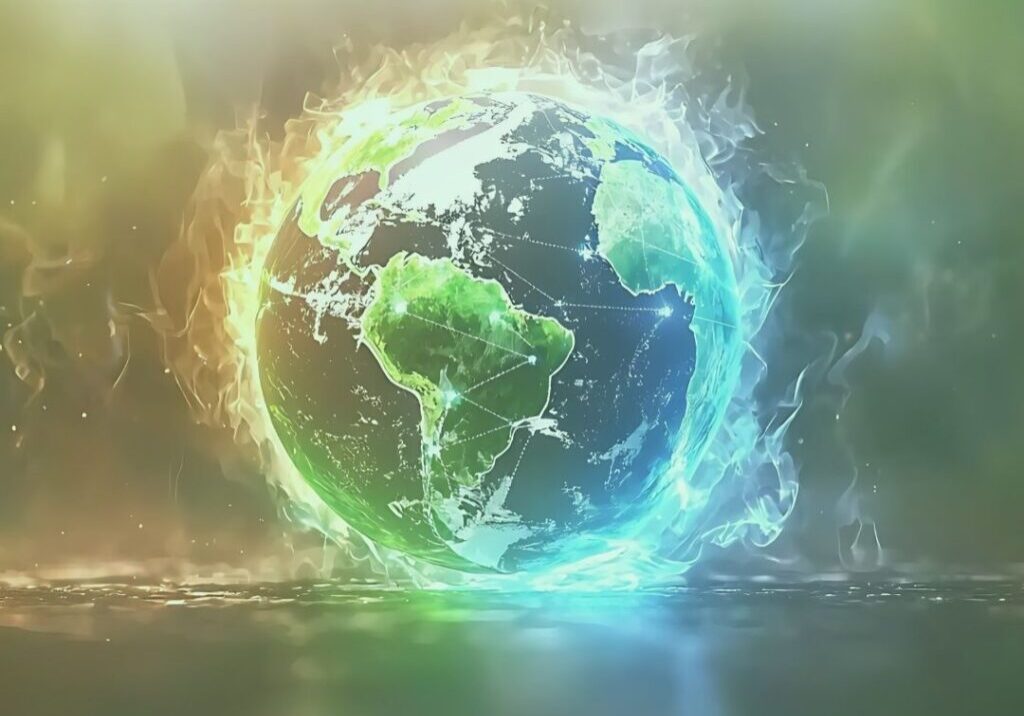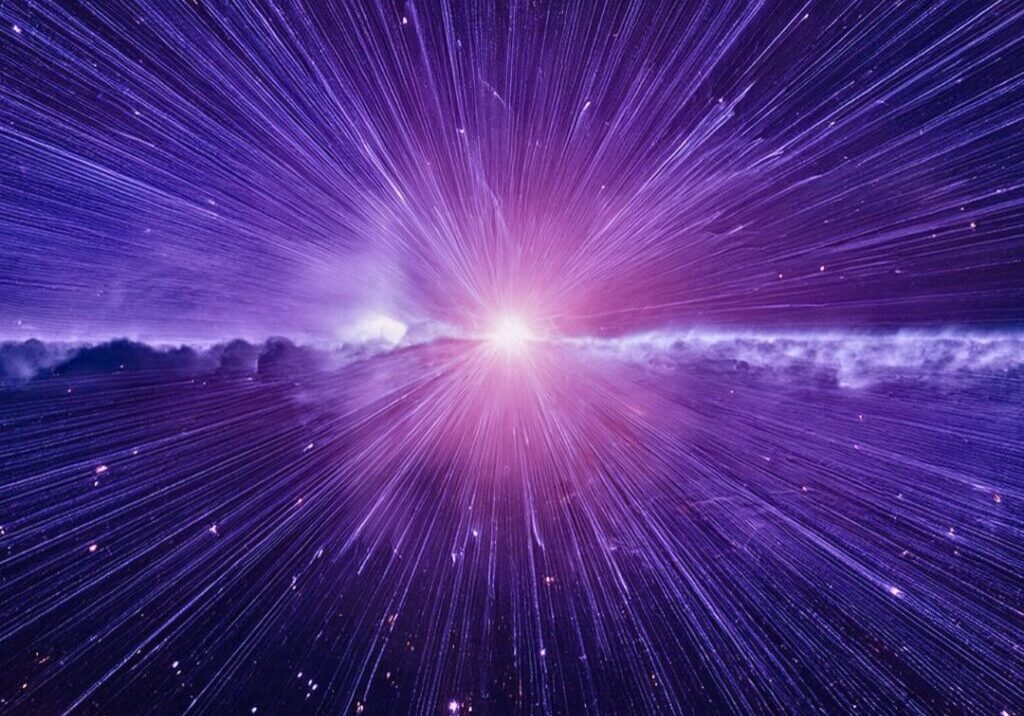Co-Reactors or Co-Creators? Christic Life in an Unfinished Universe
 We are now in the third week of Easter and, while joy should fill the air, the persistent COVID pandemic, multiple random gun shootings, and the tragic injustice of racial profiling fill up the news, creating fear and distrust.The good news of the Risen Christ falls on deaf ears in this unstable world that seems to drift toward the edge of insanity. The late theologian, Raimon Panikkar, once said, “a Christology deaf to the cries of this world is unable to utter any divine Word.” Is our Christology deaf to the cries of the world?
We are now in the third week of Easter and, while joy should fill the air, the persistent COVID pandemic, multiple random gun shootings, and the tragic injustice of racial profiling fill up the news, creating fear and distrust.The good news of the Risen Christ falls on deaf ears in this unstable world that seems to drift toward the edge of insanity. The late theologian, Raimon Panikkar, once said, “a Christology deaf to the cries of this world is unable to utter any divine Word.” Is our Christology deaf to the cries of the world?
The Easter Scripture readings recount an unstable and rather fearful community of early disciples gathered together at meals and in prayer. Jesus appears to them in ways that are, at first, unrecognizable, until he begins to speak. His words are comforting and empowering and the disciples are transformed by his presence. His Easter message is one of peace and forgiveness, reassuring the disciples that the power of the Holy Spirit is with them. They are to go forth and proclaim the power of God by their lives, creating a new world, a new type of community, centered on peace and forgiveness. How do we make sense of this message in our world today?
Teilhard’s vision of Christogenesis is the Easter message of the Risen Christ: death no longer has power over us. We are created for life unto the fullness of life. To appreciate his vision is to realize the universe in which we live, which can be summed up in five points:
- We live in an unfinished universe. The universe is still coming into being.
- To create is to unite. God is creating toward the future.
- True union differentiates. Personality emerges through unity.
- The world rests on the future as its sole support.
- Life seeks more life, and the power of life is love.
Life in the Risen Christ is “transhuman” in the best sense of the word. The poet Dante Alighieri coined the word trasumanar to describe the glorious transformation that awaits human beings as they are taken up into the eternal presence of God, a process that begins in this life and culminates in eternal life. One of the best examples of “trans-human” life is that of Peter when he says to the crippled man: “I have neither silver nor gold [essentially, no money] but by the power of the Spirit I tell you, get up and walk” (Acts 3:6). Christian life is based on the immanent power of the Spirit who groans within us; it is not only we who desire a new creation but God desires a new creation as well (cf. Rom 8:22ff). God, however, cannot bring about a new world without us; hence, we who believe in the Risen Christ must see the world with new eyes and act from a new heart; we are to love our enemies by breaking through the chains that imprison us. Christian life cannot be lived out of an old mindset that holds on to grudges, biases, judgments and rejections. To be a Christian is to become a new creation, a new human; to forge new paths into a new world. This too is the heart of Teilhard’s Christogenesis. Christ now has no body on earth but yours and mine, no hands but yours and mine, no feet but yours and mine. We are the body of Christ and we are to “make up in our bodies what is lacking in the sufferings of Christ” (Col 1:24). To live the Christic life means to love selflessly, to trust the process of life itself, to see the good in one another and to hope in the future. Christians are called to live this path explicitly by their own sheer consent to do so, through the promises of baptism.
Today there are virtually no differences between Christians and non-Christians—all are fearful, frightened and self-protecting. Just as the Risen Christ appeared to the frightened disciples and bestowed on them the gift of peace, we too should remember that Christian life begins with peace. This gift is the commitment of God to each of us, a commitment of love and presence, as if God says, “I love you; I am with you!” God seeks to dwell in us, to be part of our flesh and blood, to incarnate our lives. We must receive this gift of peace, trust it and act on it in faith. Fear is driven out by perfect love (1 Jn 4:18) and to live in peace is to live in love. If we truly receive the gift of peace, then we can do no other than become peace-makers in the world, which means to share the gift of our lives in love.
The message of the Risen Christ is one of presence, empowerment, friendship and new life; yet, our world hovers on the brink of death. We are like Mary at the tomb searching for the savior but the angel asks Mary: “Why do we seek the living among the dead?” We too are asked this question: why do we seek the living among the dead? This Jesus we claim to follow is not here – only we are here– and we must trust the power of God to raise the deadness of our lives into new life.
Teilhard argued that the work we do throughout our lives to improve our world is the meaning of faith in the Risen Christ. Our ethical life is a productive activity. Since God has been involved in evolution from the beginning of time, our love for God requires cooperating with God in building up the world. We are co-creators, invited to work with God in birthing the future, as Philip Hefner wrote, “to act in freedom to birth the future that is most wholesome for the nature that has birthed us.” Biological evolution has not ended with us. We are part of an ongoing cosmic process that demands our commitment to it. If we can begin to reframe Christianity as a religion of the earth, then we can begin to see that sanctification means freely participating in this stream of life that is ascending towards fullness; we are to be incorporated into God’s evolving world. Teilhard wrote, “We are spiritualized by being carried along by the spiritualization of all things. We are united to Christ by entering into communion with all people. We will be saved by an option that has chosen the whole.” The will of God is not an antecedent plan to be discovered by us, but rather a plan to be co-created through the exercise of our own minds and hearts. Hence, we must trust our intuitions to act, we must trust one another, and we must trust the events of the world, difficult as they are, for God cannot save us without our own activity, without our own consent to act.
Teilhard proposed an ethics for people who are in transit. He did not presuppose that any of our decisions could be perfect. His understanding of evolution as a world in process implies that every human decision is incomplete, and his understanding of history means that norms may have to change as history develops. Our lives make a difference to God and to God’s vision for a world of peace, justice, community and shared life. The greatest significance of our work is that it affects God’s own relational life. When we contribute to the building of the world and to developing ourselves, we make a positive difference to God’s life. Teilhard rightly noted that we should love humanity and the world because to love the world is to love God; we are to strive for “communion with God through the earth.” We are saved in and through the universe and not apart from it. His emphasis on the future has the salutary feature of making us responsible for the future. Our responsibility for evolution requires more than passing on a world no worse than the one we have inherited. Rather, a morality of movement requires that we improve the world.
Evolution has given us a better world, overall. While the quality of life is not the same around the globe, we are responsible for continuing its creative enhancement. Of course, this better world will consist not primarily in more things and more material resources, but rather increased personal capacities, greater religious devotion, justice, mutual respect, and closer cooperation. Teilhard proposes an ethic based on evolving into the future. Even in the midst of terrible tragedy, he was ever hopeful. He saw human life as a drama whose glory is in its completion. We should not live only in the present or, worse, in some primordial past. Nor should we live just from or for the future. We also need to be ethical for eternity; we need to be mindful of our actions, to realize that our actions have eternal significance and thus bear their own judgment.
Teilhard’s Christogenesis is the Easter message of the Risen Christ inscribed on a world in evolution. We are to have faith in this messy world, peace in the heart, a spirit of forgiveness, hope in the future, and a zest for life. We are to constantly seek new and creative ways to work together toward a new world of life abundant. The God who is within and “ahead” of us, invites us to build our selves, one another, and the whole earth into a new community. This new community of many different members, bound together in love, is the Christ, and the Christ is the Trinity unfolding in evolution and enfolding our lives. God becomes human and we become God so that Christ is neither only God nor only human but more God than human and more human than God. Christ is the new creation, and we are the Christ.; hence the world will become what we become and what we become God will become. Let go, therefore, and let yourself be loved.
 View print-friendly version
View print-friendly version
3 Comments
Related Posts

The Earth Groans, AI Grows: Who Guides the Flame?
In this critical moment of planetary history, where ecosystems collapse, artificial intelligence proliferates, and human meaning trembles on the edge of uncertainty, we are faced with a profound question: What kind…


Thanks for earlier comments which have encouraged me to write. I see in Teilhard’s life and work the seeds of a Krishtic consciousness, one that reaches back to cosmic origins and is original in intelligence, telios / purpose, and methods of unification today. Richard Rohr, Matthew Fox, Bede Griffiths, like Eckhart, and other mystics, even Richard Sheldrake and some of the neuroscientists today who may not explicitly claim links with Jesus, are evincing such spirituality. There’s much linguistic anthropological evidence for this stream of human consciousness, continuity and coherence in mythical, metaphoric, magi(c)al search to define/divine God, go(o)dness, in abstract and proper, common, collective nouns, annunciations and denunciations.
Jim, I so agree. I often wonder if our quest for a “Religion of the Planet” would be better served by uniting around shared concepts and beliefs. Peace. Love. Abundance. The All-One.
There is so much ( excuse me) “baggage” associated with the words Christian and Christ and not all of it positive!
Love is infused though out every word and sentence off this article. Each paragraph infuses the one below… this is the potential of every person whose life has been lived in reciprocal love with themselves, others and Mother Gaia.
I am Christopagan. I follow a Wiccan/Celtic Christian/Indigenous American path.This path is filled with love. Reverence for all creation and the Creator is at the heart.
For me, Christogenesis is a process. Genesis Is “the formation of something” and Christogenesis is creating a future filled with those life sustaining values we wish to embrace in the future. Christogenesis – creating a life sustaining future.
( life sustaining – see Joanne Macy ). For me, I needn’t be a Christian to do this.
I sense in this essay a deep love and want of a world that discovers, explores and follows that love. I do personally feel that there are certain questions that must be asked in this vision. Could the vision be even larger if it is framed in ways that are not always seen as “Christian”? For myself, Christ, Muhammed, Lau Tzu, Buddha are all names for one thing…Love. Love dissipates separation. Our “individualities” and “differences” are part of our Love and Creativity.
Yet the finding imo. discovery, exploration, and creativity of that Love does not depend upon a specific religion, not even Jesus. Nor does it depend upon ethics or a morality movement. Often those gestures are strident and lead in directions opposite that of Love. In my experience Love, and its movements are found by sincerely asking for it, practices embracing it, and the natural flow of gratitude and giving that occurs from it.
I feel the quotes below on “belief/virtuous platitudes; reframing yet keeping “Christianity”, have historically shown an abundance of difficulties.
“we who believe in the Risen Christ must see the world with new eyes and act from a new heart; we are to love our enemies by breaking through the chains that imprison us.”
” If we can begin to reframe Christianity as a religion of the earth, then we can begin to see that sanctification means freely participating in this stream of life that is ascending towards fullness; we are to be incorporated into God’s evolving world.”
Love can begin to emanate from beliefs and generous platitudes. However, that often seems a roundabout process…and historically hasn’t worked so well. Love is simple…and can be found by anyone truly desiring it, having a perspective that it can be granted, and asking for it. Love has no religion. Even atheists’/agnostics believe, discover and explore…God….As Love. When that happens…Love being found… it seems to me, that the creativity that flows naturally, heals the wounds and disturbances of the world; and is unifying in the process…because Love is what we truly are…and in that, like you and Tielhard have said…we are “Co-Creators” of our universe.